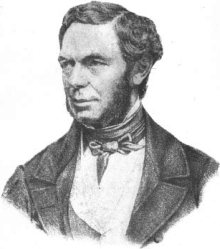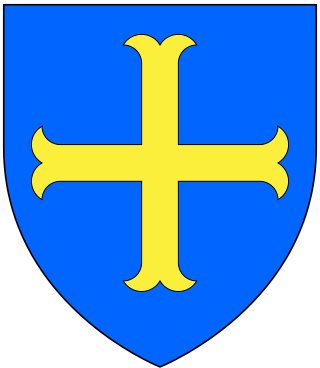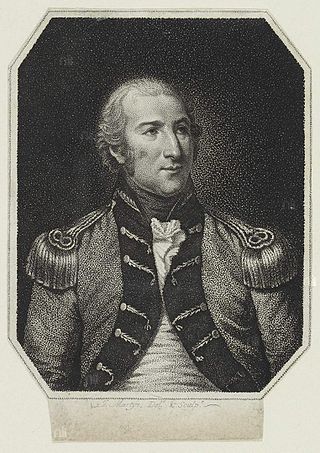Related Research Articles

Earl of Roden is a title in the Peerage of Ireland. It was created in 1771 for Robert Jocelyn, 2nd Viscount Jocelyn. This branch of the Jocelyn family descends from the 1st Viscount, prominent Irish lawyer and politician Robert Jocelyn, the son of Thomas Jocelyn, third son of Sir Robert Jocelyn, 1st Baronet, of Hyde Hall. He notably served as the Lord Chancellor of Ireland from 1739 to 1756. In 1743, he was raised to the Peerage of Ireland as Baron Newport, of Newport, and in 1755 he was further honoured, when he was made Viscount Jocelyn, also in the Peerage of Ireland. He was succeeded by his son, the second Viscount. He represented Old Leighlin in the Irish House of Commons and served as Auditor-General of Ireland. In 1770 he also succeeded his first cousin once removed as fifth Baronet of Hyde Hall. In 1771 he was created Earl of Roden, of High Roding in the County of Tipperary, in the Peerage of Ireland. Lord Roden married Lady Anne Hamilton, daughter of James Hamilton, 1st Earl of Clanbrassil and sister of James Hamilton, 2nd Earl of Clanbrassil, a title which became extinct in 1798.

Viscount Hawarden is a title in the Peerage of Ireland.

The Irish Rebellion of 1798 was a major uprising against British rule in Ireland. The main organising force was the Society of United Irishmen, a republican revolutionary group influenced by the ideas of the American and French revolutions: originally formed by Presbyterian radicals angry at being shut out of power by the Anglican establishment, they were joined by many from the majority Catholic population.
Sir Thomas Tresham was a leading Catholic politician during the middle of the Tudor dynasty in England.

Thomas Addis Emmet was an Irish and American lawyer and politician. In Ireland, in the 1790s, he was a senior member of the Society of United Irishmen as it planned for an insurrection against the British Crown and Protestant Ascendancy. In American exile, he took up legal practice in New York, earned a reputation as a staunch abolitionist, and in 1812 to 1813 served as the state's Attorney General.

Michael Doheny was an Irish writer, lawyer, member of the Young Ireland movement, and co-founder of the Irish Republican Brotherhood, an Irish secret society which would go on to launch the Fenian Raids on Canada, Fenian Rising of 1867, and the Easter Rising of 1916, each of which was an attempt to bring about Irish Independence from Britain.

Irish Catholic Martyrs were 24 Irish men and women who have been beatified or canonized for dying for their Catholic faith between 1537 and 1681 in Ireland. The canonisation of Oliver Plunkett in 1975 brought an awareness of the others who died for the Catholic faith in the 16th and 17th centuries. On 22 September 1992 Pope John Paul II proclaimed a representative group from Ireland as martyrs and beatified them.
The High Sheriff of Tipperary was the Sovereign's judicial representative in County Tipperary. Initially an office for a lifetime, assigned by the Sovereign, the High Sheriff became annually appointed from the Provisions of Oxford in 1258. Besides his judicial importance, he had ceremonial and administrative functions and executed High Court Writs.
Golden is a village in County Tipperary in Ireland. The village is situated on the River Suir. It is located between the towns of Cashel and Tipperary on the N74 road. In older times the village was known as Goldenbridge. It is also a parish in the Roman Catholic Archdiocese of Cashel and Emly, and is in the historical barony of Clanwilliam.
Events from the year 1798 in Ireland.

Richard John Uniacke was an abolitionist, lawyer, politician, member of the Nova Scotia House of Assembly and Attorney General of Nova Scotia. According to historian Brian Cutherburton, Uniacke was "the most influential Nova Scotian of his day.... His faith in Nova Scotia's destiny as a partner in a great empire was only to be equalled by Joseph Howe." He devoted 49 years to public service in Nova Scotia. He fought in the American Revolution and later sought to emancipate Catholics and Black Nova Scotians who were slaves in Nova Scotia. He is buried in the crypt of St. Paul's Church. His substantial estate is preserved as the Uniacke Estate Museum Park at Mount Uniacke.
The Baronetcy of Lisheen, County Tipperary, was created in the Baronetage of the United Kingdom on 5 August 1801 for Col. Thomas Judkin-Fitzgerald (Uniacke), who had adopted the surname of Judkin in compliance with the will of his maternal uncle Judge John Lapp Judkin, of Cashel. The title was a reward for suppressing the United Irish Rebellion of 1798 in Co Tipperary as High Sheriff of Tipperary. On his death in 1810, in a "criminatory obituary" and in reference to his excessive use of the cat o' nine tails at this time, it was said that "The history of his life and loyalty is written in legible characters on the backs of his fellow countrymen."

There have been three baronetcies created for descendants of the ancient Norman family of Molyneux who were granted extensive estates in Lancashire after the Norman Conquest.

Colonel Robert Uniacke-FitzGerald was an Irish politician.

Henry Charles Sirr was an Anglo-Irish military officer, policeman, merchant and art collector. He played a prominent role in suppressing the Irish Rebellion of 1798, which included personally killing Society of United Irishmen leader Lord Edward FitzGerald, who Sirr alleged had been resisting arrest.

Cloghroe is a village and townland on the R579 road in County Cork, Ireland. It is 7 miles (11 km) northwest of Cork, close to Inniscarra and Tower. The Sheep River runs to the rear of the local pub Blairs Inn on the western side. The Wayside Inn is at the eastern end of the village. The origin of the name Cloghroe is from the Irish cloc rua meaning "red stone", which is common in the natural geography of the land. Cloghroe House is situated en route to the Inniscarra Community Centre. It was built in the middle of the 18th century and became the home of Elizabeth, second daughter of Joseph Capel, descended inherited residence of Sir Joseph Capel Judkin-Fitzgerald 4th Bt of Lisheen who died in 1917. Cloghroe village is a linear settlement consisting of one row of houses on each side of the road.
The High Sheriff of County Cork was the Sovereign's judicial representative in County Cork. Initially an office for lifetime, assigned by the Sovereign, the High Sheriff became an annual appointment following the Provisions of Oxford in 1258. Besides his judicial importance, the sheriff had ceremonial and administrative functions and executed High Court Writs.
The High Sheriff of County Waterford was the Sovereign's judicial representative in County Waterford. Initially, an office for a lifetime, assigned by the Sovereign, the High Sheriff became an annual appointment following the Provisions of Oxford in 1258. Besides his judicial importance, the sheriff had ceremonial and administrative functions and executed High Court Writs.
Sir Richard Musgrave, 3rd Baronet was an Irish baronet and politician.
Uniacke may refer to:
References
- ↑ A Scientific, Antiquarian and Picturesque Tour: John (Fiott) Lee in Ireland, England and Wales, 1806–1807, ed. Angela Byrne, Routledge, 2018, p. 267
- ↑ A History of England in the Eighteenth Century, William Edward Hartpole Lecky, volume VIII, London: Longmans, Green, and Co., 1890, p. 26-30
- ↑ The Irish Magazine, October 1810, p. 482
- Attribution
![]() This article incorporates text from a publication now in the public domain : Dunlop, Robert (1892). "Judkin-Fitzgerald, Sir Thomas". In Lee, Sidney (ed.). Dictionary of National Biography . Vol. 30. London: Smith, Elder & Co.
This article incorporates text from a publication now in the public domain : Dunlop, Robert (1892). "Judkin-Fitzgerald, Sir Thomas". In Lee, Sidney (ed.). Dictionary of National Biography . Vol. 30. London: Smith, Elder & Co.